I'm Your Empress Of: An interview with Lorely Rodriguez
Music — 03.04.20
Words: Anastasia Solovieva
Photography: Dorian Ulises López Macías
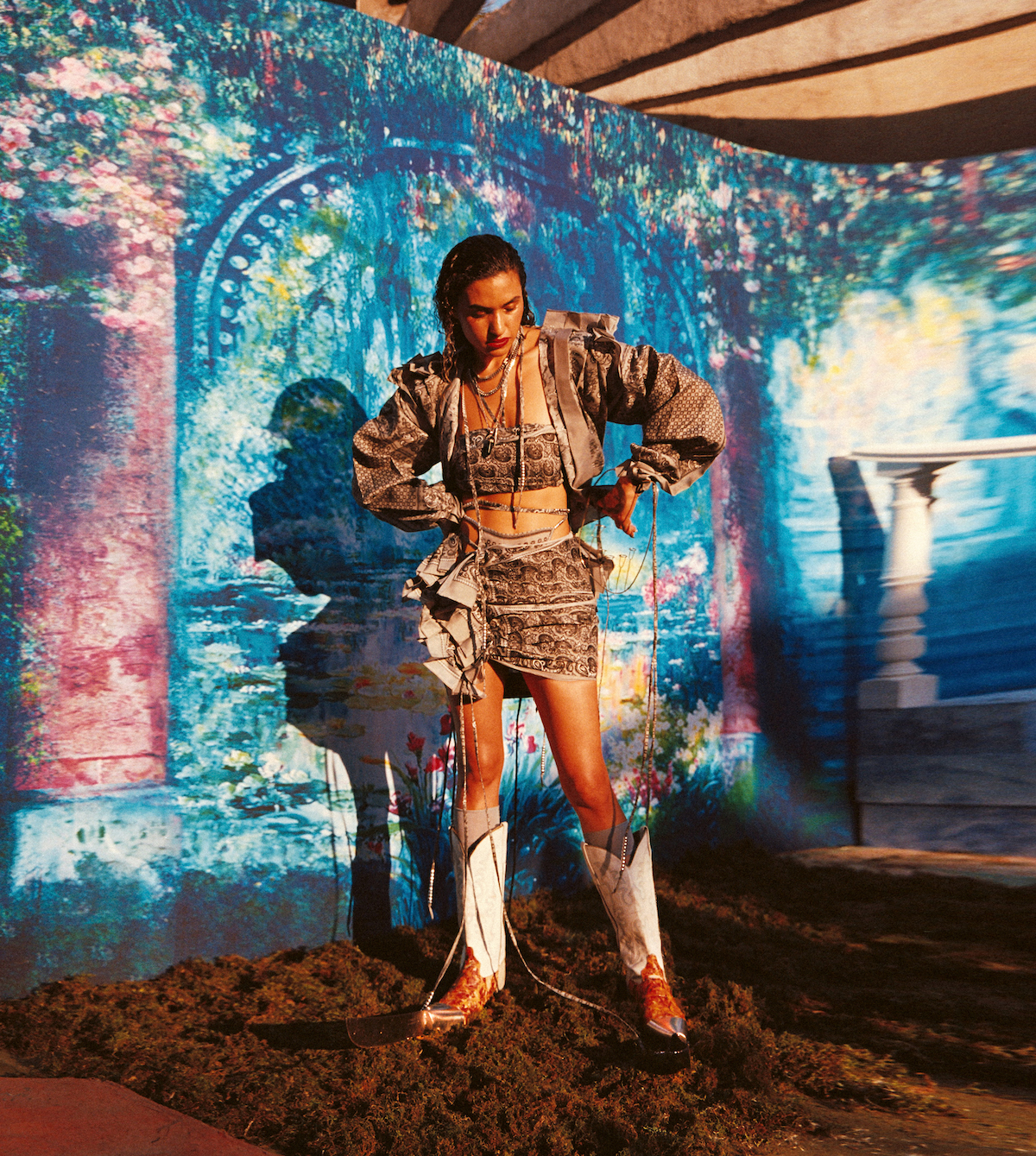
Creativity is a wave. “It comes and goes, and you just have to trust that it will come back”, says singer-songwriter, musician and record producer Lorely Rodriguez, better known as Empress Of, reflecting on making her third album I’m Your Empress Of, where she taps back into her electronic roots, metabolizing heartbreak, and highlighting each attribute that makes her different.
Born to hard-working immigrant parents, Lorely is a proud first-generation Honduran-American. Growing up in Los Angeles, she absorbed most of pop culture at school, returning to a Spanish speaking household that served a modest cultural shock, celebrating different foods and sounds. Beginning to write songs at thirteen, she knew right away it was going to be more than a hobby.
Influenced by Four Tet, Caribou and Todd Terje, I’m Your Empress Of channels undeniable confidence through songs rooted in the universal familiarity of falling in and out of love, while paying beautiful homage to her Honduran heritage featuring conversations with her mother throughout the record.
Today, having cut her teeth collaborating with artists including Khalid, Mura Masa, Lizzo, Blood Orange, and Maggie Rogers, Lorely is a vibrant force of nature and a distinctive voice in music and culture.
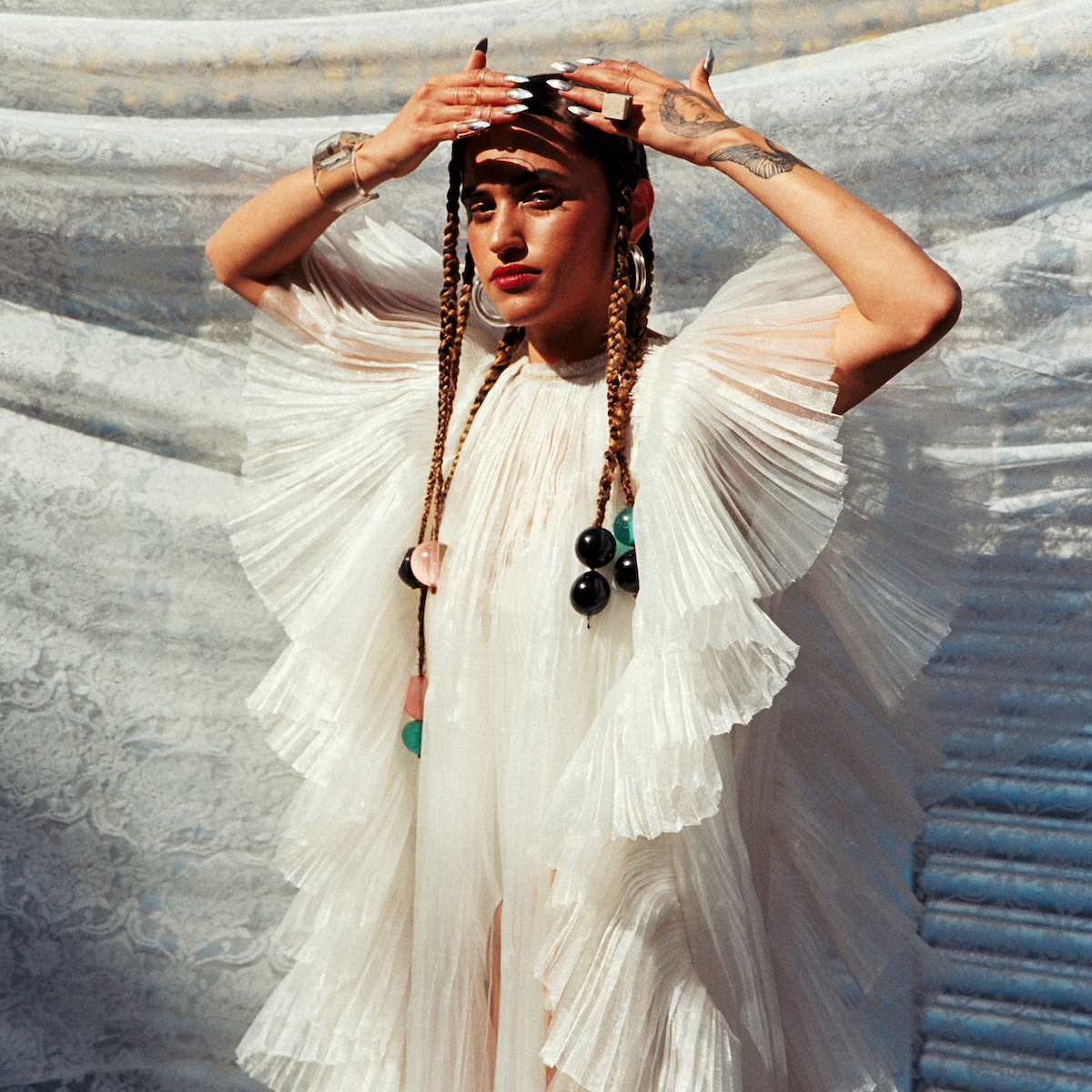
Where did the title I’m Your Empress Of come from?
When I wrote the opening track, I knew I’d have to call the whole album I am Empress Of because there is no way that I would get away with having a theme song. I wanted the opening track to be an arrival statement, like, I’m here. It’s got a lot of complexities and layers, like the salsa piano pattern which is something my dad taught me when I was eight years old and is a big part of me.
.. and your mom is making some serious statements. She has bars!
She’s always talking shit on the background, like, “you shouldn’t have worn this”, and, “don’t text that guy back”, or, “you’re going out too much”. She is never not speaking her mind, and she is always right, even if I don’t agree with her then and there. This record is very much encompassing everything that I am right now, as a Latin American woman, and having that generational difference of my mom really helped bring it a step further. I originally recorded her for the opening track, letting the beat loop for 20 minutes. She said so many poignant and powerful things, I knew I had to use it throughout the whole record. She’d say stuff like, “love is the language of the heart”, and I thought if I lay that over a dance track, she’d sound like one of those old schoolhouse voice overs. I just had to.
On “Void” she urges all of us to “make yourself the woman that nobody is gonna mistreat”. Checkmate.
You compromise yourself a lot for love, and so many of the tracks on this record are about me compromising myself, and letting someone treat me in a way I don’t want to be treated. This is her speaking from experience on what we all encounter as women. She’s that voice of reason.
She’s making me think of Maya Angelou’s profound words – “I’m a woman, phenomenally. Phenomenal woman, that’s me”. What is womanhood for you?
This record really showed me that I have to let people see me the way I see myself. Whether that’s partners in a relationship, press, or my fans, I have to put an image out that I want to see. I do feel frustrated because I don’t see my culture represented in these elevated and authentic ways. I went to Mexico City to capture the visuals for this record because I knew that team could nail the image of a woman that I want to be, that I am. My mom said it best – “woman is a word, but you make yourself the woman that you want to be”.
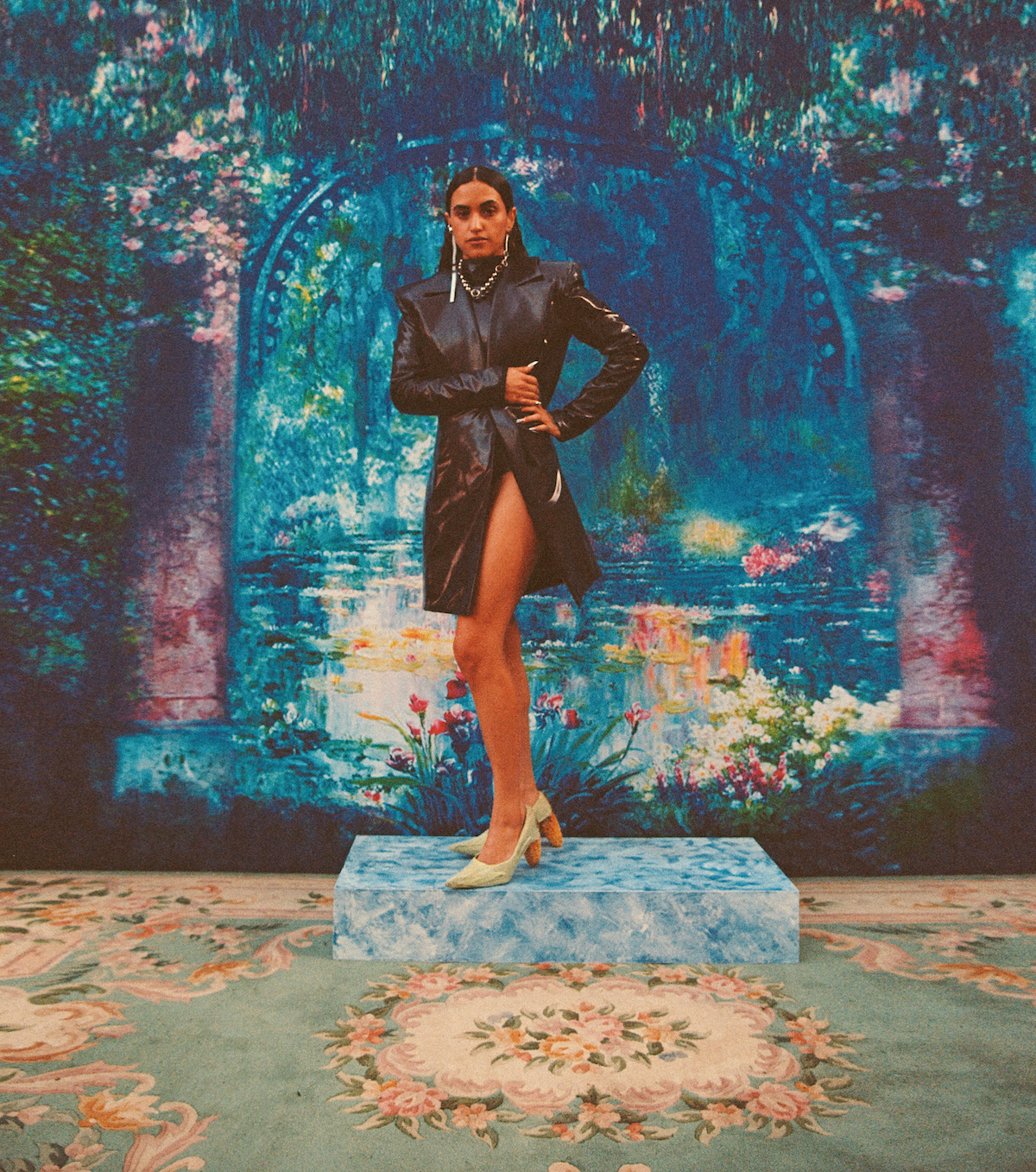
The entire album was written over a two month period while touring your last record, which feels very urgent and immediate. What happened?
I really took my time to write my second record Us. It came out and things were going great. I was getting a new fan base, touring all over the world, which was amazing. But I was really heartbroken and had no time to process it while on tour, and when I came home I was like, ‘oh, I still feel like shit’. Music has always been my outlet, and on this record, it felt that way more than ever. It felt lucky to have this thing that I can pour all my pain [and all my joy] into. Lucky because a lot of people don’t have that rescue, ending up struggling with substance abuse, mental health issues, anxiety and depression. Writing genuinely helps me with all of that, and so I put everything I was feeling at the time into these songs.
Songwriting [and creativity as a whole] can feel quite paralyzing given the need for a spark or a jumpstart. Vulnerability and complete unawareness of how to share your experiences can be liberated by putting words on a page – a universally cathartic release that always works. And with the gift of hindsight and retrospect, reemerging on the other side of pain and having something to say is really satisfying, healing. It feels free.
Definitely. This record highlighted for me that I can be really sensitive and introspective, and writing songs helps me understand why I’m feeling like that. For my precious record, I had to write so many songs, and this one was just effortless, I didn’t have to try very hard, the songs were there already. A lot of the beats I had written on tour, on planes, sprinter vans and in green rooms, but when I returned home, the songs just came.
Does your immediate physical environment affect your workflow?
This record emerged out of epic adrenalin highs and serious adrenal drops. The fast pace of repeatedly waking up at 5 am and getting on yet another plane, allowed me to be like, ok I don’t know what else to do right now, I’m gonna write a beat. Juxtaposed with then coming home and having all the time in the world to be brutally faced with so much.
The record feels very fast, but at the same time unhurried. Smooth and atmospheric, but also bouncy and sexy.
I love 34-minute records. I wanted to do something as immediate as writing it felt. That’s why I’m putting it out during the Coronavirus, and not pushing it back. As an artist I’m going to put out many records and I’m going to have many different experiences, so this is this record’s story right now – there is a global pandemic and the world feels like it might be ending, but I’m still putting out music.
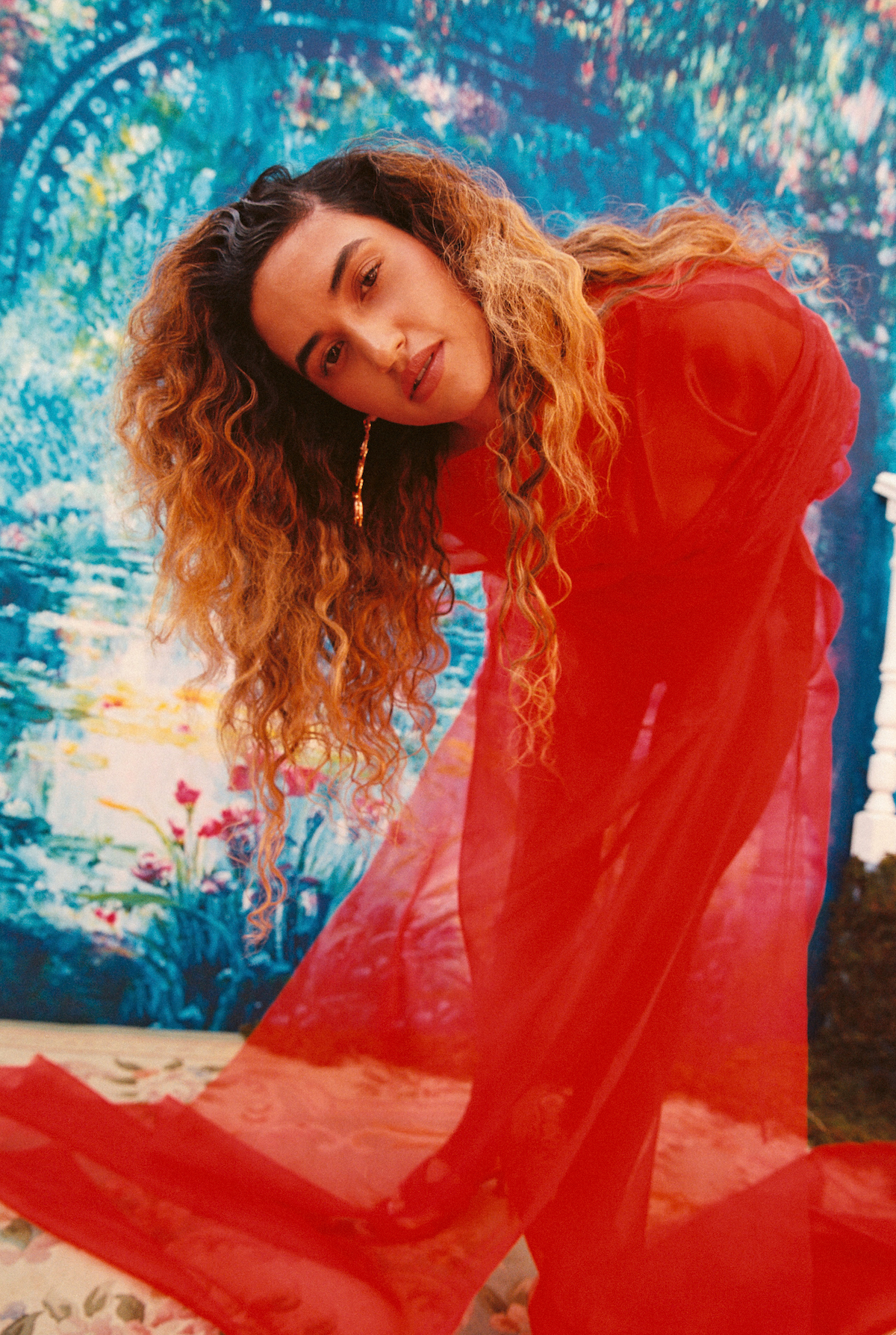
“Give Me Another Chance” was the first single you released. Is it your favourite track?
I have to say it is because it does all the things that being Empress Of is but in a 2.0 version. The production, the bass, the vocal delivery. There are a lot of things that are embarrassing to say out loud, and I’m singing them in a way that just works. I feel like lyrically, I’m doing it. Saying stuff like ‘choose me over her’, I wrote that and I was really embarrassed by it, desperate and vulnerable, putting myself out there asking to take me back, which did not work by the way, but we got an amazing song out of it, so that’s fine. It’s just real, it’s from a real place. Also, I’ve never done a song where a chorus is so chill, I’m just saying the words. I’ve always felt like the chorus had to prove something, and I think an understated one achieves a lot more on this song. It’s one of my favourite songs I’ve ever done.
Music videos are hugely important to how we experience music. What was the creative process for building out the visuals for “Give Me Another Chance”?
Videos are so tricky because you never know what they’re going to look like in the end. I’m rarely happy with my visuals, and I’m super stoked about this one. I really like Alexis Gómez’s work, so I DM’d him on Instagram asking if he’d want to do a video with me. I knew it was going to be special, the team we built was amazing. The stylist fucking killed it. Everyone killed it. I shot it in Mexico City, along with all the visuals for this record because I think they’re doing things there that are very exciting right now. I expressed to everyone on the team that this song is very desperate, this is the 1 am text to your ex, and I needed to feel that in the lighting, the strobe, the casting, the styling, I wanted to feel that desperation through every element.
A truly successful collaboration, much like in bed, happens when you are working with people who are on the same page – some people are just a better match. This record encapsulates very precise stages and consequences of love. How do you remain open to believing in love and how does it carry in your work?
It’s something that as an artist I find hard to balance. It’s so easy to write a song about heartbreak and it’s really hard to write a song about being in love. I think heartbreak is more of a believable feeling, it’s more relatable. It’s a very specific type of love on this record. The love songs are essentially hookup songs, they’re almost naive. “Bit Of Rain” is so much about the first time you meet someone, going through all the initial butterflies, while “Love Is A Drug” is just about shamelessly wanting affection post-breakup. “Not The One” goes like ‘I say the same things to you that I say to him, I love it’, so it’s like, you’re a rebound. This record is really interesting to me because it’s just extremely desperate in all the ways. The breakup songs are desperate and the hookup songs are desperate.
“What’s The Point” feels exposed, too.
I wrote “What’s The Point” and “Maybe This Time” maybe a day apart. They are both about fighting with your partner and wondering when it is going to be too much. When have we had one too many fights, and also how much longer am I going to sit here and let you talk to me like this. Having your partner touch you and it feels wrong, and you know that loving them feels wrong but you’re doing it anyway. Which goes back to what my mom is saying, and on these songs I’m here dealing with it. These songs are very hard for me to listen to because I’ve never written about being on the edge of so much fighting in a relationship and thinking, when is it going to be too much?
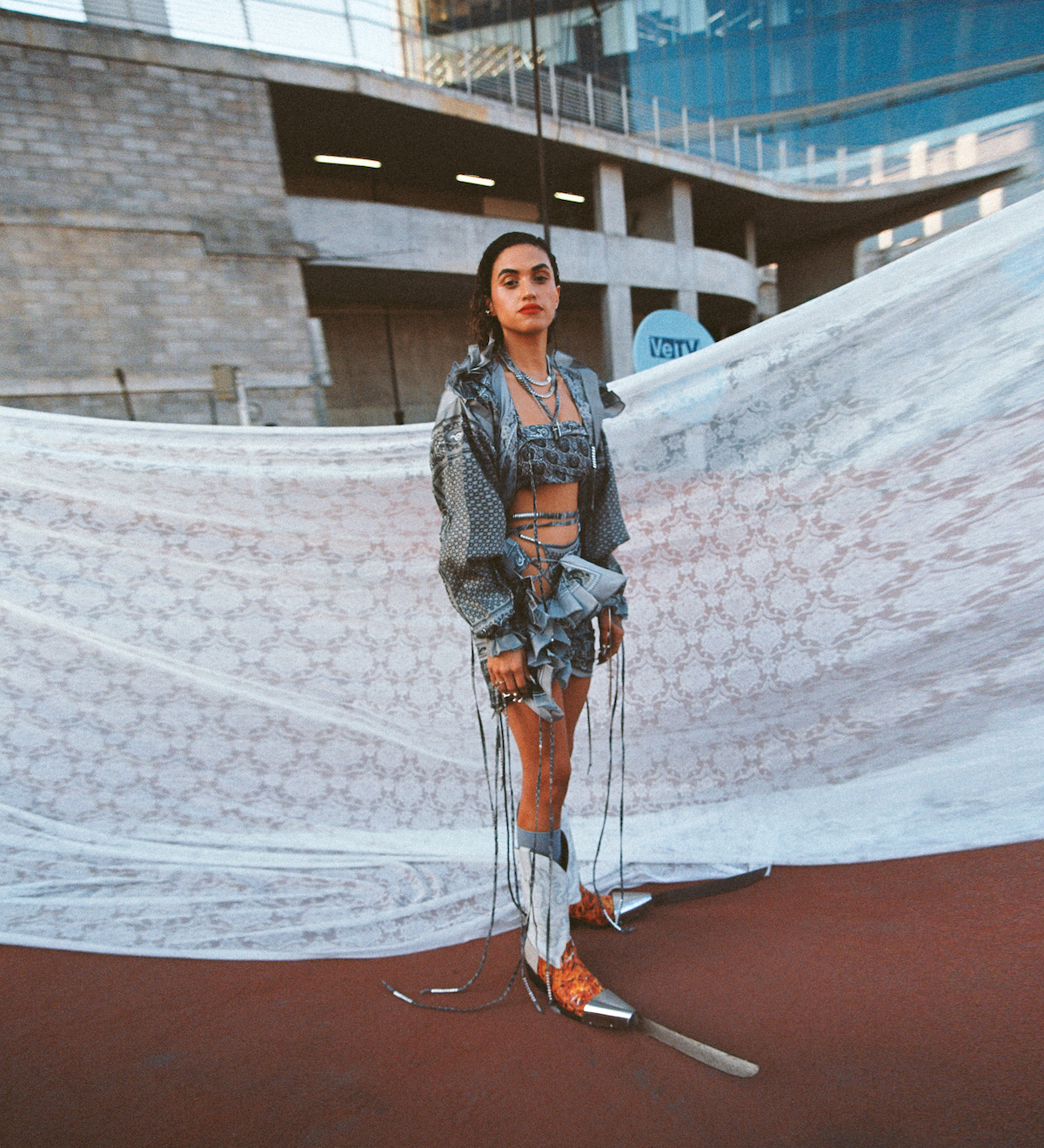
Putting an album out that you can’t take to radio stations, tour and do physical press for must feel emotional and somewhat crippling. How much does the ability to perform your music mean to you?
I love playing live and being able to transform the songs to an audience. It’s really sad because I don’t think I’m going to get a chance to tour this record, which makes its story even crazier. Touring [to me] is part of the record release, taking something that you made in the studio or your bedroom and translating the story to the crowd. There is something so special about people seeing the sweat on your face, noticing your eyes squint, feeling you hit those notes. What I think is going to happen is that I’m going to make another record and then just tour both, which would be insane.
Being a creative means often struggling with the notion that everything already exists. Does it ever bother you to think there is an end to newness?
If you acknowledge that everything already exists, you accept it. Originality is a hard concept, but writing something true is better than writing something original. Everything has been written, but no one has your point of view, and more than anything, for me, it’s about the sound of the voice. Take covers. Nina Simone can sing someone else’s song, but it’s Nina Simone’s voice that makes it a newborn, and no one has Nina Simone’s voice but Nina fucking Simone. So no matter what you are singing about, it’s your voice that makes it new.
What are you working toward as an artist?
My goal has always been to make really amazing music, and sometimes it’s really working and sometimes it’s just about being on the path to it. First and foremost I’m a musician, but everything kind of relates to each other. For instance, making clothes with my mom out of complete necessity at first was never aimed to be a thing, but now we are really working on it together. I just want to tell my story and grow and have the creative space to do that.
Stream Lorely’s new album I’m Your Empress Of below: